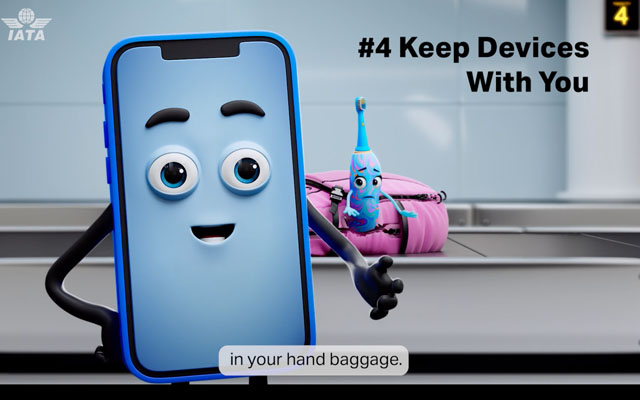The International Air Transport Association (IATA) has launched Travel Smart with Lithium Batteries, a global campaign promoting safe travel with mobile phones, laptops, power banks, and other lithium-powered devices.
Running across IATA’s website and social media platforms, the campaign offers seven simple rules for handling these items safely when flying. Airlines, airports, and travel partners can also access white-label materials for use across their own channels.

Recent IATA passenger survey results show that travellers are increasingly carrying multiple electronic devices – 83 per cent bring a phone, 60 per cent a laptop, and 44 per cent a power bank. Yet, despite 93 per cent claiming to know the rules, many misunderstand key regulations. Half incorrectly believe small lithium-powered devices can be checked in, while 45 per cent think power banks can go in checked luggage. A third are unaware of power limits for batteries or spares.
To address this, the campaign highlights seven key guidelines: carry all battery-powered items in hand luggage, never pack them in checked bags, protect loose batteries, check airline rules and battery watt-hours, and immediately alert crew if a device is hot or damaged.
The multilingual campaign will be rolled out industry-wide, with airlines and airports encouraged to share its digital assets. A short animated video has also been produced to communicate the rules in a clear and engaging format.
Common items powered by lithium batteries include mobile phones, laptops, tablets, cameras, e-readers, smartwatches, headphones, portable speakers, grooming tools, e-cigarettes, hearing aids, and small power tools.
“Lithium-powered devices are safe when handled properly, but they can pose a risk if damaged or packed incorrectly. As more travellers fly with these devices, our Travel Smart with Lithium Batteries campaign will help airlines educate their passengers on the simple rules they must keep in mind when travelling with the electronic devices that have become an essential part of their daily lives,” said Nick Careen, IATA’s senior vice president for operations, safety and security.











